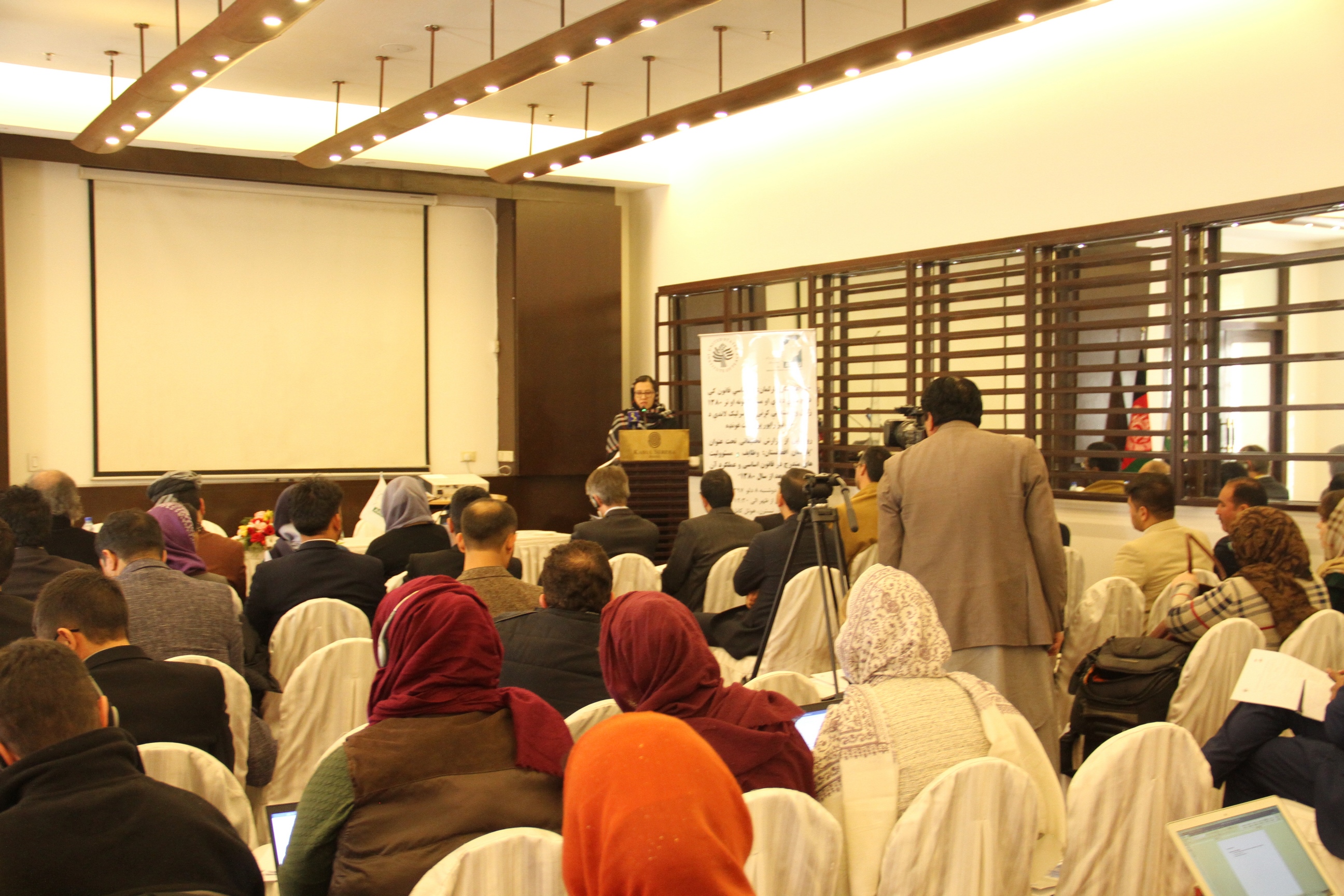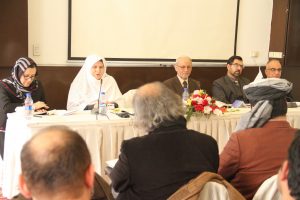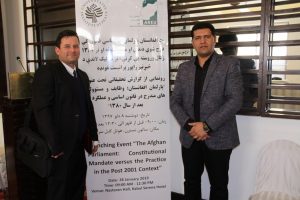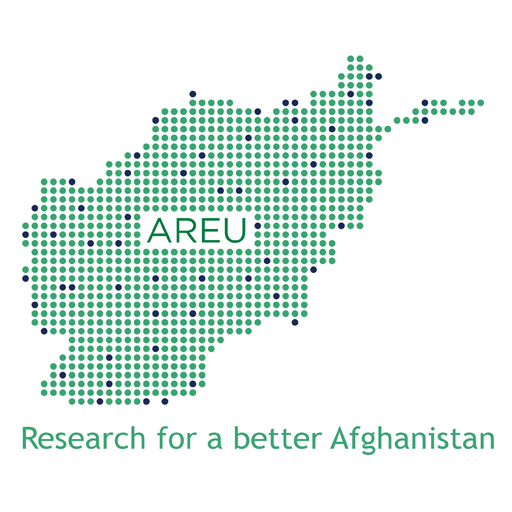
28 Aug The Afghan Parliament: Constitutional Mandate versus the Practice in the Post 2001 Context
 On 28 January 2019, the Afghanistan Research and Evaluation Unit (AREU) launched a research report titled “The Afghan Parliament: Constitutional Mandate versus the Practice in the Post 2001 Contextâ€.
On 28 January 2019, the Afghanistan Research and Evaluation Unit (AREU) launched a research report titled “The Afghan Parliament: Constitutional Mandate versus the Practice in the Post 2001 Contextâ€.
Dr. Orzala Nemat delivered a welcome address at the launch of the research paper at the Kabul Serena Hotel. In her opening remarks, Dr Nemat thanked USIP for its generous financial support and the authors for shedding light on the performance and effectiveness of the parliament vis-Ã -vis its mandate. The event generated significant interest and was attended by foreign diplomats and UN officials, members of civil society, researchers and academics, former and current members of parliament, and other high-ranking Afghan civil servants. Media organisations were also present and recorded the discussion that took place, and later interviewed Dr Nemat at the conclusion of the event.
Dr Nemat highlighted the essence of the Constitution in her opening remarks, citing different articles to emphasise why the development of this text was a participatory process. She also drew attention to the importance the Constitution places on the role of the National Assembly as the highest organ of the state.
Dr Shamsad Pasarlay, author of the report, presented the research findings, giving a brief historical background into the Afghanistan’s previous and current constitutions before introducing the primary research questions guiding the study:
- What powers does the 2004 constitution grant to the parliament?
- How did the parliament perform over the past two terms?
- How can Afghanistan establish an effective and viable parliament going forward?

Dr Shamsad Pasarlay kicked-off his presentation by giving a brief historical background into the Afghan government. The main points that he highlighted included the fact that Afghanistan’s 1964 constitution was the first in its history that effectively separated the executive’s powers and created a comparably powerful parliament. Although the parliament was vocal for the next decade, it did not succeed in practice for a variety of reasons including a high rate of illiteracy on technical matters, inability to draft laws, fragmentation, and the absence of political parties. The experiment in parliamentary representation came to a premature halt due to the 1973 coup, the Russian invasion in 1979, and the subsequent political and military turmoil that gripped the country until late 2001.
The methodology used to conduct the research involved the collection of primary data via interviews with the drafters of the Constitution, current and former parliamentarians, and national and foreign experts of the Afghan parliament. Archival materials on the drafting of the constitution between 2002-2004 were also used. Secondary data in the form of books, peer-reviewed journals, reports, and online digital channels were also used for the study.
The primary research findings showed that the constitution grants sufficient powers to the parliament to fulfil critical roles. These include the power to legislate, represent the views and demands of the people, and to use oversight mechanisms (summoning, impeaching, and using a vote of no-confidence), the appointment and removal of government ministers, and having financial control of the state budget.
The researchers found there was a significant divergence between the mandate of the parliament and what it does in practice. For instance, in the past two terms of parliament, the legislative body has only passed five laws on its initiative. By contrast, the executive branch of government has passed 257 laws over 15 years. The imbalance between the two branches of government was cited as a central reason for why a number of significant constitutionally mandated laws have not been passed. Consequently, the researchers noted, the role of the parliament as a legislative body has been relegated to passively approving laws tabled by the executive.
The researchers identified five challenges facing the parliament:
- The first is the Single Non-Transferable Vote (SNTV) system which has militated against the development of viable political parties in the lower house of parliament.
- The second relates to constitutional ambiguities as to defining the powers of the parliament.
- The third is a fragmented parliament linked to SNTV which undermines the ability of parliamentarians to form political alliances.
- The fourth is a hostile relationship between the executive and the legislative branches of the government.
- The final point is that the executive has too much legislative power.
The authors provided a range of recommendations to enhance the performance of the parliament. The following recommendations provide a high-level snapshot only. The first recommendations centered on replacing SNTV with a First-Past-The-Post electoral system or a form of a proportionate representation system. A second was strengthening Afghanistan’s electoral institutions (IEC and IECC). This was considered to be necessary given the numerous shortcomings that emerged both during and following the 2018 parliamentary election such as the clash between the IEC and the IECC over the validity of votes cast in Kabul province and the significant delay in announcing the preliminary results. The third recommendation focused on amending the constitution to limit the executive’s legislative power and to increase the legislative capacity of the parliament. The final recommendation deals with respecting the oversight duties of the parliament. For instance, the authors encouraged the formation of parliamentary groups that are not based around personalities but rather that reflect certain causes, ideologies or principles. They also called on the parliament to disclose the way in which parliamentarians have voted to promote transparency and accountability.
Following the presentations, a panel discussion took place which were succeeded by questions from members of the audience.
The key note speaker was H.E. Abdul Raouf Ibrahimi, Wolesi Jirga.
The panelists included:
- Mohammad Ashraf Rasooli, Senior Advisor at the Ministry of Justice,
- Lutforahman Saeed, Member of the Independent Commission for Overseeing the Implementation of Constitution (ICOIC),
- Shah Gul Rezai, Member of Parliament,
- Ghulam Hassan Gran, Former Secretary General of Wolesi Jirga.

